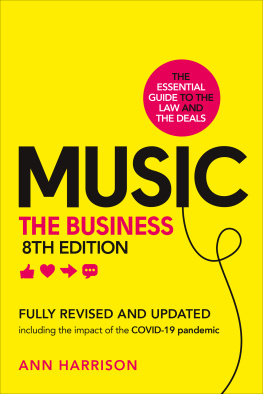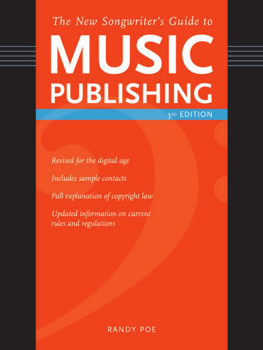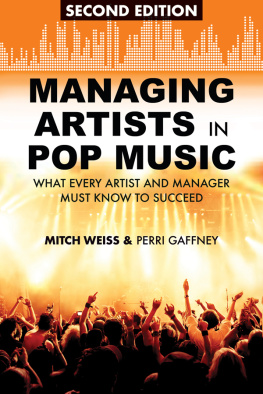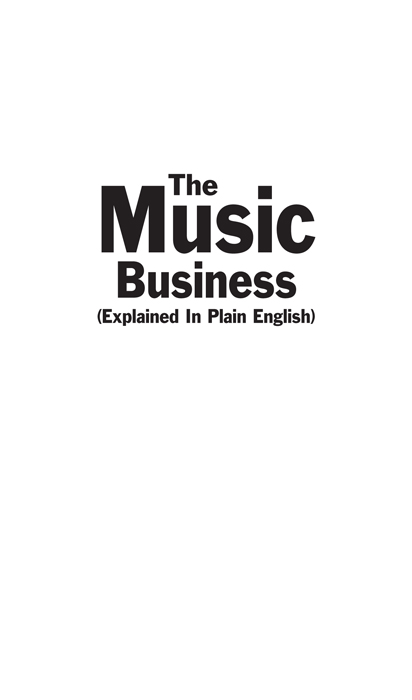This book is dedicated to my parents, Avner and Frankie Naggar,
to my siblings, Mickey, Auri, Ron, and Tammy,
and to my nieces and nephews,
Jed, Sari, Josh, Danny, Elizabeth and Joe.
2013 David Naggar
Fourth Edition. First printing.
ISBN: 978-1-57746-577-5
ISBN ebook edition: 978-1-57746-578-2
Library of Congress Control Number: 2013939969
Original cover and book design by Gary Hustwit.
Front cover image: Nevit Dilmen
Back cover photo: Kathy Picard
No part of this book may be reproduced, in any form or by any means, without permission in writing from the publisher, except by a reviewer, who may quote brief passages in a review.
Published by DaJ Publishing, San Francisco, CA
www.dajepublishing.com
www.facebook.com/dajepublishing
Distributed by SCB Distributors
15608 South New Century Drive
Gardena, CA 90248
Printed in the USA.
ACKNOWLEDGMENTS
No book is written in a vacuum. I have learned a great deal from all of the materials mentioned in this book. Additionally, I would like to acknowledge the assistance Ive received through the years from people throughout the industry, including Jill Alofs, Fred Ansis, Chris Barros, Michael Cerchiai, Tom Chauncey, Kevin Koloff, David Conrad, Frank DuCharme, Ritch Esra, Dulce Farmer, David Gottlieb, Lyle Greenfield, Randy Grimmett, David Grossman, Edward Hearn, Susan Heller, Herbie Herbert, David Hirshland, Jim Kennedy, Jeff Leslie, Jeff Lowy, Harry Poloner, George Scarlett, David Shea, Ron Sobel, Bruce Solar, and Don Welty. Id also like to thank Kathy Picard for her assistance in reviewing this book. Finally, a special thank you to Jeffrey Brandstetter. Without his work on the first edition, this book would not exist.
F OREWORD T O T HE F OURTH E DITION
Much has changed in the music industry since I wrote the third edition of the Music Business (Explained In Plain English). Sales of physical CDs have continued to decline, and digital distribution methods have evolved. Major label record companies are regrouping to take full advantage of the emerging digital, streaming, cloud age. Music markets and audiences are even more fragmented. New sources of income for artists and songwriters are replacing older sources of income, and many artists are more hesitant than ever to sign any record deal, as record companies seek to sign artists to deals in which the record companies profit not only from record sales, but also from other sources of artist income such as live performance, publishing and merchandising.
Even though there are important new players in the industry, the dominance of major label record companies continues at least in terms of breaking out new artists and overall digital and CD sales. Beyond new methods of music distribution, new business models for streaming music, new copyright rulings and regulations, new rules for licensing songs, and the emerging use of cloud lockers, there is a growing importance for artists to build their own websites and fan base.
This updated and expanded edition covers these changes, and more. As with the first three editions of this book, Ive made every effort to explain what artists and songwriters need to know in plain English.
INTRODUCTION
1. T HE B OTTOM L INE
Music is art. This book is not about art!
There is a harsh reality about the music business that you probably already know: People (not counting loved ones) will help you if they think your art will make them money. They will not help you if they do not think your art will make them money.
Like other businesses, the multi-billion dollar music industry is driven by money. Because sales of physical CDs have tumbled, large record companies are not in the best of financial health. This too is a harsh reality of the music business. But the music business itself is not going way. It is merely morphing.
If you are new to the music business, or have been involved for years but never really had the big picture explained to you in plain English, this book is for you. I have written it to help artists and songwriters understand the basics of this industry beyond the club scene, and beyond the process of creating your own fan page or uploading your music for direct purchase. You dont need to know everything, but if you dont understand the basics, you are setting yourself up to be ripped off.
Ive used a lot of footnotes (endnotes if you are reading the ebook edition) because I am a lawyer and lawyers do that sort of thing. The information contained in the footnotes/endnotes is important to clarify nuances, but is less important than the main text for understanding the big picture. Also, I have tried to be specific about real numbers used in the industry, such as the royalty percentages earned by artists signed to record deals and the royalty rate earned by songwriters when their songs are put on those records. Although I know these numbers are important to you, keep in mind that the numbers can change very quickly, and many times, during the course of your career. The concepts, however, remain the same and are the heart of the big picture.
Lets get started...
2. S OURCES O F M USIC I NDUSTRY P ROFITS
There are many sources of profit for musicians and everyone else in the music business. Money is made from the sale of physical CDs, digital downloads, interactive streaming, getting songs played on the radio, on television and in films, from concerts, video games, ringtones, merchandising, advertising, endorsement deals, and more.
Many performing artists can make a little money by nurturing a small fan base, creating a website, and establishing an account with an online music distributor.
However, today, for almost all performing artists, the real money flows first from making a record deal. This is because good record companies excel at promoting and building an artists brand so that the artist can reach out beyond a small fan following. Establishing a great brand (and avoiding getting ripped off along the way) leads an artist to be in a position to financially benefit from multiple income sources in the music business.
It may seem old-school that the catch for an artist to participate in the music bonanza is getting a good record deal in the first place. You may have read multiple articles that highlight declining CD sales and the struggles of record companies. Yes, sales of recorded music have slowed, but sales still bring in $10 billion to $20 billion dollars annually around the globe. Arctic Monkeys the band that many people hail as one of the first internet driven success stories did not cash in on the music bonanza until after signing a good record deal. And Justin Bieber who was discovered by a talent manager who saw Biebers videos on YouTube didnt start generating serious money until his hookup with Usher and Island Records.
Here is the hard part. As an artist, until you create a buzz in the industry, it is extremely unlikely that you will get a good record deal. Absent a buzz, industry pros wont think they can make money from your art and no one will spend the resources on you to see that you have a big money-making music career.
Of course, in todays Twitter, Facebook, YouTube, MySpace, Google, iTunes world, once you become a famous artist, you may no longer need a record company for future financial success. But to help you become famous in the first place, a record companys participation may be indispensable.
You may be both an







